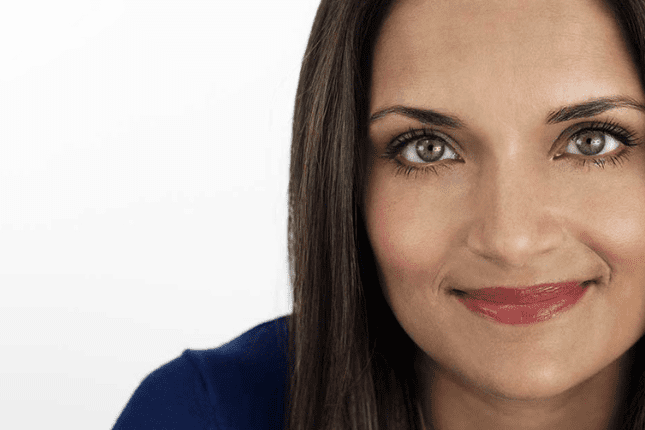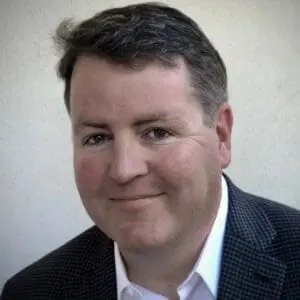After a divorce, clinician and bestselling author Dr. Shefali found herself at the precipice of an intense transformation. As she sifted through the effects of the completion of her 25-year union, she found herself confronting the surprisingly automatic role of compulsive caregiver that she’d played in her family—one that women the world over continue to take on. Author of New York Times bestsellers, The Conscious Parent and The Awakened Family, Dr. Shefali, an Indian-born specialist in integrating Eastern philosophy with Western psychology, and a regular Oprah guest, was so struck by the power of the roles she had taken on in her life and unwittingly played out in her marriage, and especially by how these patterns had stifled her authentic self, that it became the basis for her latest book, A Radical Awakening.
Ryan Howes: In your new book, A Radical Awakening: Turning Pain into Power, you shift from your previous focus on how parents miss their children’s spiritual uniqueness, to how ignoring your own uniqueness while you played a wifely role involved a level of psychic pain that ultimately contributed to the end of your marriage. How did you come to this revelation and what happened next?
Dr. Shefali: In my case, I learned how I’d co-created what happened in my marriage through my internalization of gendered roles like “caregiver.” I had to understand that, not only so that I could heal, but so that I could empower myself not to make the same choice unconsciously in the future.
The Western world is so good at encouraging us to run away from pain—by distracting, numbing, and sublimating it. But during my divorce, I found a new sense of power by facing the pain I was going through and coming to terms with how I’d allowed it to happen. I’d discovered that not unlike my previous work of asking parents to see their children as unique spiritual beings, the work of truly awakening to our own selves as adults—what I call “radically awakening”—begins with being able to still yourself enough to not run away from pain. I took my own advice, leaned into it, and alchemized the pain into healing.
RH: What does it mean to alchemize pain?
Dr. Shefali: As I tell my clients, there is an extra step beyond healing and accepting your pain. And that is to truly transform it into the kind of understanding that gives you power. To do this you need to wrestle with why you made the choices you made in the first place. What about your inner emptiness allowed you to make decisions that stifled who you are?
My next step was to consider how I might use the pain. When a therapy client comes to me and says, “I’m in great pain in my life, and I feel powerless,” I immediately think, “what would it look like to help them turn that pain into power?” Sharing my experience and writing about my pain now may just have a positive effect on others. And that is a reclamation of power for me.
RH: It strikes me that your readers may be surprised that someone who specializes in helping parents acknowledge and empower their children’s uniqueness, struggled to do the same for herself.
Dr. Shefali: I’ve learned it’s often only when we women go through difficulties like, for instance, a divorce, and begin to take our power back, that we can begin to clearly understand how we’ve allowed ourselves to dim our light and let others take charge of our lives. Successful, well-known women are no exception. This is because we’ve really all been raised to think of ourselves as second-class citizens. So despite our accomplishments, we continue to give away our power, often without even realizing it.
The kinds of painfully limiting expectations that still attach to women’s lives are often part of the reason female therapy clients are in so much pain. They’ve tethered themselves to a belief system that doesn’t reflect who they truly are and that says something in them isn’t working, or should be different than it is. If they can come to acknowledge this and embrace what is within instead, the pain will begin to dissipate.
The problem the world over is that instead of facing and really listening to it; many of us choose to go numb and distract or medicate ourselves when faced with emotional and psychic pain. We don’t know how to go within; we’ve just learned to look outward for a solution. But we practitioners can right this wrong for our clients as part of our work.
RH: You were born in India where spirituality and philosophy seem to be more about shedding than acquiring material goods or fortune and fame. How do you advise Americans who’ve grown up with the opposite message?
Dr. Shefali: The Western world is constantly focused on the external validation of getting, and acquiring, and doing. Eastern philosophy, meanwhile, focuses on shedding all of this so that you can achieve peace. It’s so important to be able to tap into that philosophy—that way of looking at life. It’s certainly been a pivotal healing tool in my life, I relied on it through my divorce, and it’s something that I want my clients to experience as well.
First, we need to explain to clients that going within isn’t something that they can just intellectualize and then move past to get to a quick solution. They must build those muscles daily through a practice of meditation, and of being quietly present with and accepting of all the feelings that arise.
It can feel like these two philosophies of East and West are at cross purposes with each other. But we can still be in the material world of doing too. And, if we’re simultaneously grounded in this stillness within ourselves, we can enjoy this world without getting consumed by or lost in it. This is an important principle, because when we’re faced with something truly disruptive or devastating, like a divorce, that gained stillness can help us come to terms with the pain and its relationship to worldly expectation.
For clients who may be going through any manner of problems—anxiety for instance—the doing must shift to being, because if all the doing is emerging out of a lack of connection, then you end up in the same anxiety anyway.
Ask yourself, “where does anxiety start?” It starts from a disconnection. And if it starts from a disconnection, the result will be a disconnection. That is what meditation teaches: how do you move away from disconnection from the self to deep inner connection? You have to tap into the present moment repeatedly.
RH: As you worked on your own awakening, how did it affect your previous understanding of being a conscious parent?
Dr. Shefali: What conscious parenting does is take away the traditional focus on fixing the child and instead ask the parent to raise themselves, to heal themselves, and enter a stage of wholeness. Because if we as parents are in a place of brokenness, then we project this brokenness onto our children. We don’t want to create this perfect puppet— the child— who will become the next “doing” machine and try to fulfill the parents’ desire for external validation. Instead, conscious parenting brings the focus back on the interconnection the parent needs to feel within themselves so that they don’t use their children to fulfill themselves. As long as parents are unaware of their impulse to raise a mini me, our children will suffer, we’ll raise children who themselves now are disconnected, and the cycle will continue.
Parents need to understand that the child is here to develop their own authentic self and that parents don’t need to be enmeshed with their children in order to feel whole. As I worked on the fallback role of caregiver I was playing so completely, I had to acknowledge that that enmeshment was also at work in me. I also had to ask myself some hard questions about the role I was playing that my kids were witnessing. Did I want them to think that they too would have to become caregivers to the level of detriment of their own needs and desires?
That can involve finding out what the child’s interests are and what they’re passionate about. And then joining with them. When it’s just following the lead of the child, understanding that the child is here to fulfill their own destiny, not to be here as a puppet for the parents unfulfilled fantasies.
RH: That really does fly in the face of a lot of the old teachings of children just being small adults or needing to be seen and not heard. Why doesn’t traditional discipline work with children?
Dr. Shefali: Traditional discipline is steeped in the most excessive form of control—fear. And it’s grounded in possession. And, because we are unconscious about that, we give ourselves authority as parents to unleash any sort of punishment on our children because we believe what we believe. Disciplining the child emerges from a lack of internal discipline in the parent, which allows the parent to unleash this desire for control, possession, and puppeteering of the children. Although unconscious attempts at fear-based control appear to mitigate the negative behavior, it actually dims our children’s spirit and creates so much fear that now the child is seeking the same fear-based control of people around them.
That’s why violence perpetuates in the world, that’s why bullying perpetuates in the world, because we are not truly teaching our children to regulate their emotions. We are teaching them to fear and to mitigate the fear by controlling others. Bullying is often unconscious—the bully is just following the script they’ve learned.
RH: How do we make parents more conscious? How do we shake them awake and say, “Look, your behavior matters”?
Dr. Shefali: I teach parents to understand why they feel so out of control, why they feel that they need to unleash so much power over their children. And typically, when the parent begins to do the inner work and excavate the reason they typically arrive at, “Wow, I was feeling out of control and helpless, which is related to my own inner pain bodied from childhood. And I have all these unmet needs from childhood that my child in front of me is activating again. And I’m now seeking to control that pain that is coming up by dominating my child.” It all goes back to dealing with our own pain, not running from it, and that comes from learning to be in the present moment.
We have all been conditioned to focus on scarcity and potential, future-based lacking. The way many of us raise our children is to focus on the next step, and the step after that that will get them into college. The entire focus of childhood, for a lot of people, is college. That’s how we take our children out of the present moment and train them to live in a future-based, lack-based mode. It’s no wonder then that we’re raising generations of children that don’t know how to be present. It’s terrifying for them.
But ultimately, all any of us do have is the present moment—right here, right now. And when we tap into that, we no longer constantly live in this eternal, future-based lack. It’s something we all ought to meditate on regularly, if we ever hope to be truly awake.
Ryan Howes
Ryan Howes, Ph.D., ABPP is a Pasadena, California-based psychologist, musician, and author of the “Mental Health Journal for Men.” Learn more at ryanhowes.net.













